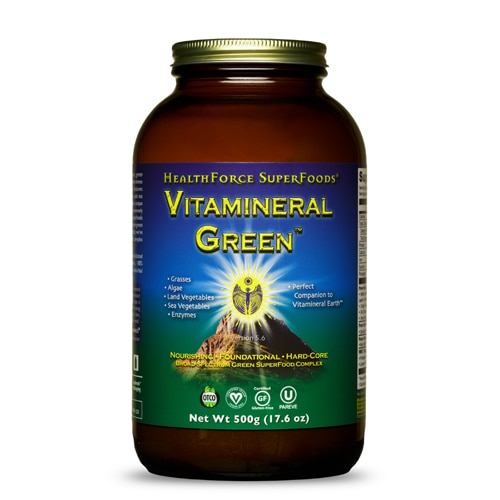Astonishingly, just 5 percent of Americans identify as vegetarians and just 3 percent as vegans. However, this small minority of the population may very well be much healthier than the majority of Americans.
How so? The American Dietetic Association says that “appropriately planned” vegetarian and vegan diets are “nutritionally adequate” and might offer myriad benefits in warding off or treating various diseases.
“Vegan and vegetarian diets are phenomenal for your health, the animals and the environment,” says Scott Burgett, founder of plantbasedscotty.com, a vegan recipe and wellness website.
While those advantages are worthy of praise, a vegetarian or vegan still must follow an “appropriately planned” diet. An inappropriately planned vegetarian or vegan diet can lack certain vital nutrients or even can be laden with fat and sugar.
So, if you’re a vegetarian or vegan, how do you ensure you’re adhering to a proper diet? Experts serve up these four tips.
1. Stick to whole, unprocessed foods.
This perhaps is the most important pointer for vegetarians and vegans.
Burgett says that as long as you derive most of your calories from whole, unprocessed foods, you shouldn’t have any major dietary concerns. These foods include fresh fruits, fresh vegetables, whole greens, beans/legumes, nuts and seeds.
“For your health, it’s incredibly important to eat foods in their whole form so that you can reap all the benefits the [vegetarian and vegan] diets have to offer,” Burgett says.
2. Boost your B12 intake.
A common nutritional deficiency among vegetarians and vegans is vitamin B12. Burgett says that’s because B12 is naturally found only in animal foods, which vegans and some vegetarians don’t eat.
A study published in 2003 in the Journal of Clinical Nutrition found that among people who didn’t take vitamins, 92 percent of vegans and 77 percent of vegetarians lacked sufficient amounts of B12, compared with 11 percent of meat eaters.
However, a once-a-week, 2,500-milligram B12 supplement should be enough for vegetarians and vegans to maintain normal levels of the vitamin, Burgett says.
“These supplements are cheap, easy to ingest and safe. All vegans, along with vegetarians who don’t eat meat or fish, should supplement [with B12] as a standard, not an option,” he says.
Registered dietitian Maria Zamarripa recommends staying away from ready-to-eat breakfast cereals fortified with B12, as many of them are chock-full of sugar.
“Instead, choose fortified and unsweetened plant-based milks, nutritional yeast or a B12 supplement to help meet these vitamin needs,” Zamarripa says.
3. Bump up the fatty acids.
For vegetarians and especially for vegans, ensuring adequate consumption of two healthy omega-3 fatty acids in particular — EPA (eicosapentaenoic acid) and DHA (docohexaenoic acid) — is critical, since they’re mostly found in fish or fish oil.
As a safe, effective alternative, Burgett recommends microalgae.
“Fish are touted as omega-3 champions, but they have to get it from somewhere, and that somewhere is microalgae,” he says. “By skipping a step and going straight to the source, vegans and vegetarians can take a low-cost omega-3 microalgae supplement.
to get what they need.”
Another beneficial omega-3 fatty acid that vegetarians and vegans should pay attention to is ALA (alpha-linolenic acid). ALA can be added to the diet through consumption of various nuts and seeds, including walnuts and flaxseed, Burgett says. Eating ALA-rich nuts and seeds also helps convert EPA and DHA in your body.
4. Don’t go overboard.
Burgett cautions that veganism don’t automatically translate into a “healthy” diet.
“Consumers seem to assume that the vegan label is a free pass to indulge until their stomachs hurt because they think it’s good for them. That couldn't be further from the truth,” he says.
Oftentimes, vegan foods like snack chips, cookies and nutrition bars are packed with fat and sugar, making them just as harmful as non-vegan “junk food,” Burgett says. Even highly processed “mock” meats and cheeses can be loaded with fat. Therefore, if you’re doubtful about the nutritional value of vegan “junk food,” opt for whole, unprocessed foods, he suggests.
Registered dietitian nutritionist Taylor Wolfram, who specializes in vegan diets, offers a different take on vegan “junk food.” While whole foods are nutrient-filled and tasty, it’s fine to eat “fun foods” like vegan-friendly pizza, cake, cookies, pies and pastries, she says.
“The risk of overeating these foods is greater when we’re restricting or dieting. When we allow ourselves to eat what feels good, we naturally strike a balance between nutrient-dense foods and pleasure foods,” she says.
Wolfram adds that since vegans must be super-vigilant about making sure they’re consuming certain nutrients, they should work with a dietitian to map out a dietary strategy.
“I see disordered eating a lot in this community,” she says, “as people become hyper-focused on nutrients and health.”




